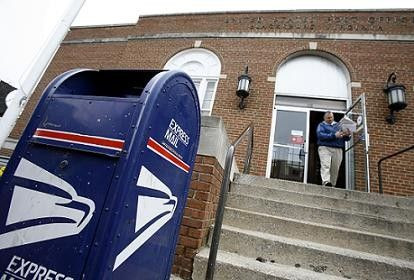USPS Ends Next-Day Mail: The Impact for Consumers and Companies That Depend on it

The United States Postal Service announced steps Monday to eliminate its next-day delivery of First Class mail in an effort to avoid bankruptcy in 2012.
The reeling USPS is moving forward with its plan, originally announced in September, when it said it would shut down more than half of its 461 processing facilities used to process its next-day delivery service. In the cost-cutting process, the postal service expects to shed around 28,000 jobs, said David Williams, USPS vice president for network operations, in a press conference Monday in Washington, D.C.
The U.S. Postal Service must reduce its operating costs by $20 billion by 2015 in order to return to profitability, Williams said in a statement. The proposed changes to service standards will allow for significant consolidation of the postal network in terms of facilities, processing equipment, vehicles and employee workforce and will generate projected net annual savings of approximately $2.1 billion.
Analysts said Monday that the effects of ending next-day delivery -- along with the other expected cost-saving changes that could come soon -- will trickle down from the workers losing their jobs to the customers depending on USPS. It will also be felt with the middlemen -- the mail-order pharmacy services, DVD-by-mail services and newspaper and magazine deliveries.
It will also continue to benefit privatized shipping companies like titans Federal Express and United Parcel Service.
Without next-day service, First Class delivery times would be pushed back from one to three days to two to three days. Williams said in his press conference that delivery times for higher-priced mail such as Priority Mail and Express Mail would not be affected. USPS has already announced plans to raise the price of a First Class letter from 44 cents to 45 cents beginning on Jan. 22.
It's going to make the customer-service experience more difficult for people who want to send mail, said Jim Corridore, an analyst at S&P Capital IQ, in a phone interview with the International Business Times on Monday afternoon. It's going to take longer. For an item that definitively needs to be there next-day, things are going to shift to FedEx or UPS.
Some of those items are mail-order prescriptions, legal documents, mortgage documents and DVDs by mail.
For mail-order prescriptions, concerns could pop up about shipping conditions. Particularly, some medicines require temperature-sensitive conditions, and with longer delivery times, these conditions would have to be extended.
By phone Monday, Express Scripts Inc. spokesman Brian Henry said he did not want to comment on whether the company might shift delivery carriers. But he did say that the company would look into the best and quickest ways possible to get medicine to its patients.
We wouldn't speculate on things that haven't happened yet, Henry said. As we always have in the past and as we will continue to do in the future, we will make sure that patients get their medicine the quickest way possible. That's what we've always done. That's what we'll continue to do.
Other items that may be affected are DVD-by-mail subscriptions from companies like Netflix and Blockbuster. Netflix uses USPS to ship DVDs from its local distribution centers. According to Netflix's Web site, most members receive new DVDs in one business day.
In an email, Netflix spokesman Steve Swasey said that the company was not commenting on this. However, Corridore said disgruntled customers frustrated with the new USPS business model might eventually force the hands of companies like Netflix.
For example, he said a possible effect could be customers receiving fewer DVDs per month because of the extended wait times. He added that Netflix could move toward expanded streaming service and shift carriers.
What happens when you raise the price and make your product worse? Corridore said. That's what's been happening for a long time at USPS.
Williams said USPS lost $5.1 billion in its fiscal year 2011, and the agency projects a $14 billion loss this year. USPS has said that its funds would run dry by September 2012 without congressional intervention and sweeping changes to its operations.
Senator Tom Carper (D-Del.), the chairman of the U.S. Senate subcommittee that oversees USPS, said in a statement Monday that the announcement served as another grim reminder that we must act quickly if we want to save the postal service and the eight million jobs that rely on it. He called the situation dire, but not hopeless, and he said Congress needed to act on his proposed postal reform bill before declining business at USPS becomes further eroded.
Meanwhile, analysts like Corridore see more changes ahead -- a drop in Saturday service the most noteworthy. And for now, at least, time-sensitive materials will force customers to shift business away from USPS.
You can't cut your way to profitability, Corridore said. They're making their product worse for the same price, or higher prices.
© Copyright IBTimes 2025. All rights reserved.





















